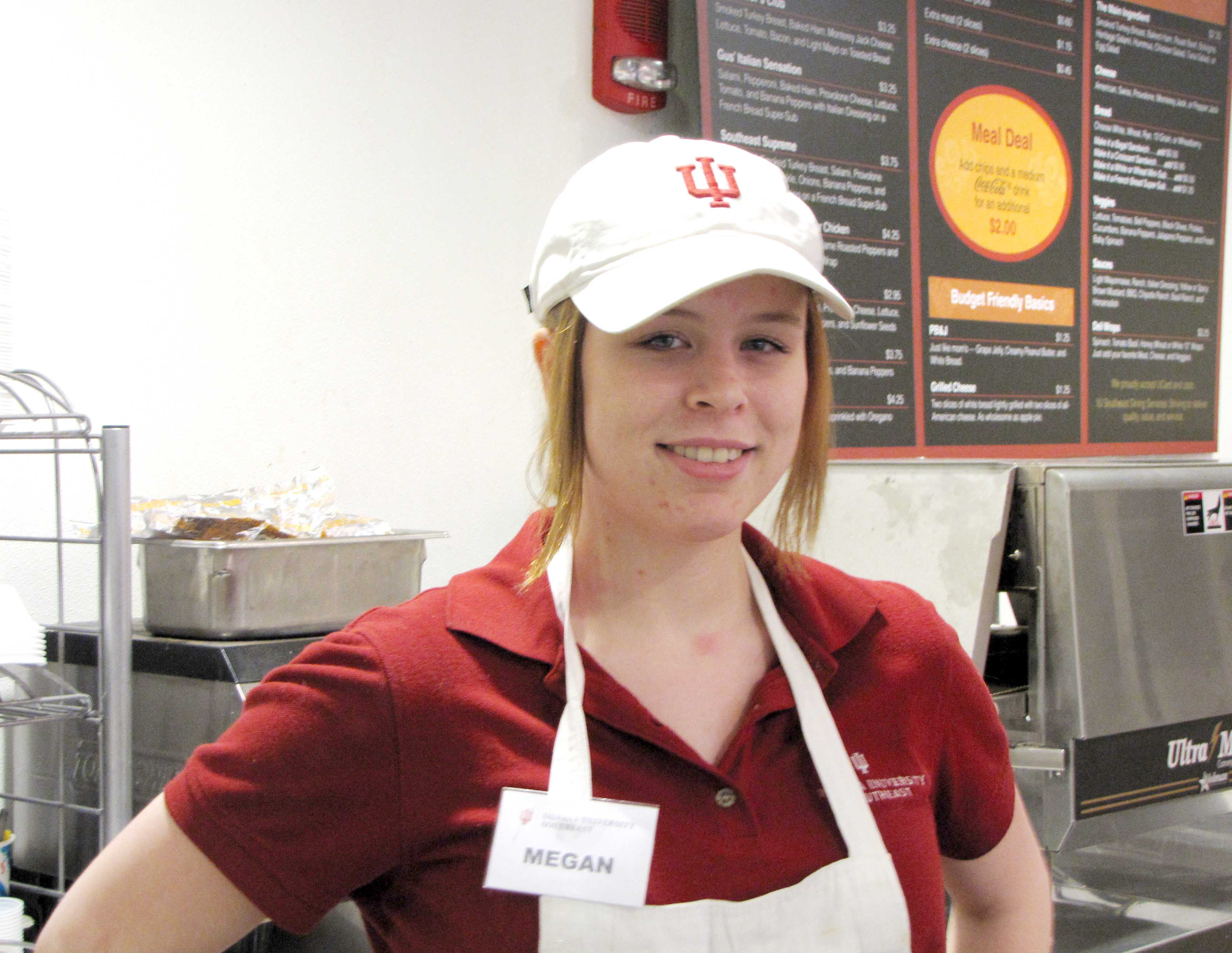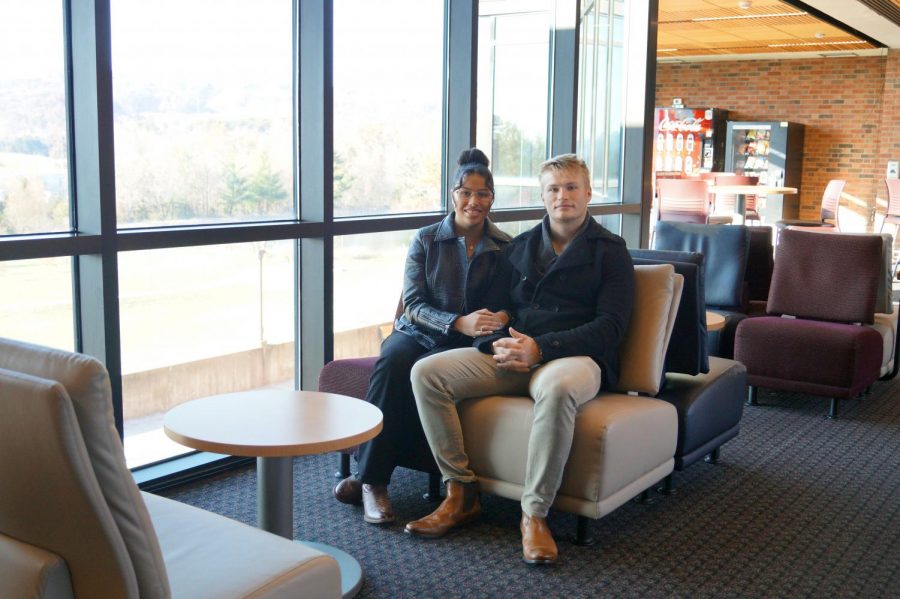
Megan Whyte, biology junior, traveled from her home in Alberta, Canada, to New Albany three and a half years ago in order to study at IU Southeast and be close to her boyfriend.
Whyte’s boyfriend, Jonathon Miller, psychology junior, is native to Jeffersonville, and the two met while playing a multiplayer online video game called “World of Warcraft.”
After courting by phone for five months, Miller flew to Whyte’s Alberta home so the two could meet face-to-face.
“I came down here several weeks after he came to Canada to see where he lived and visit,” Whyte said.
“He was already in the process of applying at IUS, and I decided to apply down here and got accepted.”
Whyte’s mother, Karen Whyte, 43, said she was surprised when her 17-year-old daughter came to her with her plans to move to Indiana.
“When she told us that she met Jon online we were surprised, and when she told us that she wanted to move down there and go to school we were very hesitant,” Karen Whyte said, “but we trust her judgment and are behind her in whatever it is that she chooses to do.”
Miller said he was happy and relieved to discover Megan Whyte was accepted to IU Southeast.
“I was glad we got to cut back on airport goodbyes,” Miller said.
Until traveling to the area, Megan Whyte ad- mitted she had some stereotypical preconceptions about what south- ern Indiana and Kentucky might be like.
“When I found out Jonathon lived near Kentucky, I assumed Kentucky was like a swamp with alligators and people in straw hats,” she said.
In reality, Megan Whyte said she was surprised to discover that Southern Indiana and Kentucky were not too far removed from Spruce Grove, Alberta, where she previously resided.
“How this area looks is really similar — I lived in a hilly area, too,” Megan Whyte said. “The only thing that is really different is you guys have a lot of leaf trees, and we have a lot of pine trees in my area.”
Megan Whyte said there have not been any major differences between life in the states and life in Canada but rather many small dif- ferences.
The dialect, especially for women, was the most pronounced difference she said she noticed.
“Down here, people tend to mash their words together and draw them out at the same time,” she said. “They also leave the endings off of words, like the ‘g’ off running.”
Megan Whyte said she has been able to manage well despite differences in word pronunciations and certain sayings, but at times it has proved difficult to understand certain professors.
“I have had issues understanding some teach- ers because they have such heavy accents in certain words,” Megan Whyte said.
Megan Whyte said she discovered another slight difference in dia- lect through her work in the Food Court.
“In Canada, we say ‘To stay or to go.’ I will be at work and ask someone that and the looks I get from people are just hilarious,” Megan Whyte said. “They will stop what they are doing and think about it for a minute and say, ‘For here.’”
Another facet of life in the U.S. that took some adjusting on Megan Whyte’s behalf was the notion of having to pay for healthcare.
“It’s very strange for me to have to pay for it, because in Canada you don’t have to pay for healthcare.” Megan Whyte said. “I would only go to the doctor for very minor things, so if I need something like a yearly checkup, I wait until I go to Canada and get it free.”
Megan Whyte said while the hardest part of coming to the states
is being so far from her family, she feels she has adjusted well.
Jonathon Miller said he agrees and said his girlfriend fits right in.
“I think she has tran- sitioned really well, all things considered,” Miller said. “She makes more friends than I do on a regular basis.”
Karen Whyte said she is proud of her daughter and the independence she has displayed.
“It has been hard as parents to let her go so far away so young, but we are happy to see that we have raised a brave woman that has the courage to go in her own directions with confi- dence,” Karen Whyte said.
As far the future, Megan Whyte said she hopes to eventually marry the man whose captured her heart and inspired her to cross international borders.
Miller said while he can’t predict the future, he is optimistic.
“We’ve made it this far, so I don’t see any point in focusing on how it will end,” Miller said. “That was the mindset I had in the beginning, and I didn’t turn up murdered by crazed lumberjacks when I first went to Canada, and of course I ended up with a good relationship.”
By ANNIE MALKA
Staff
amalka@umail.iu.edu




